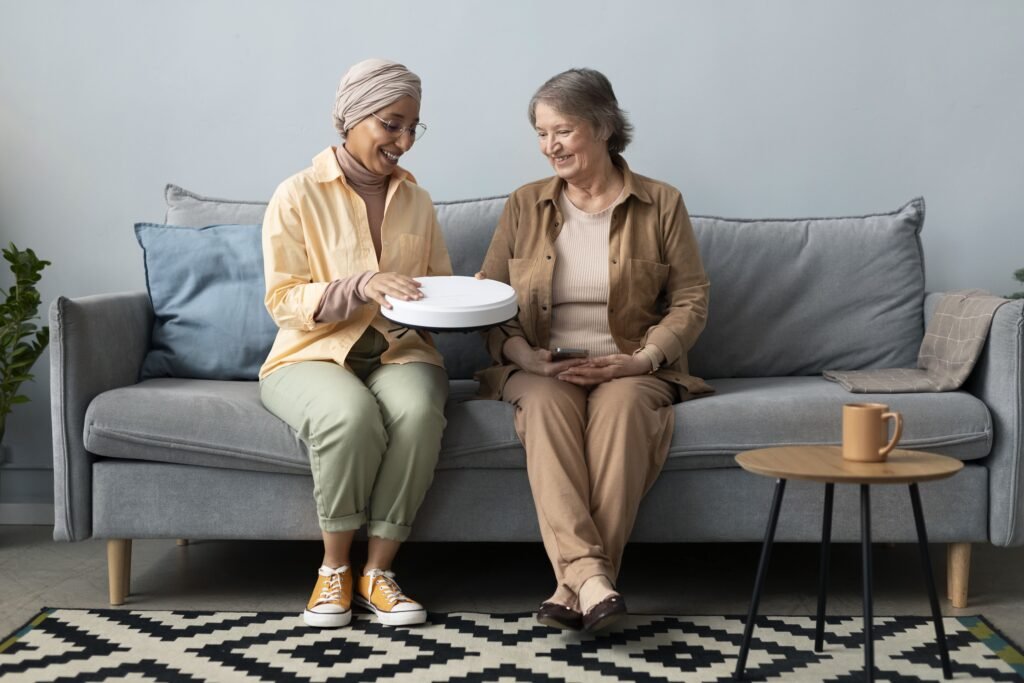Caring for a loved one with dementia can be both emotionally rewarding and physically challenging. As the condition progresses, everyday activities become more complex, and the need for personalized support increases. At Swarnvihar Old Age Homes, we understand how important it is to provide compassionate, effective, and safe care for dementia patients at home. This blog will guide you through essential tips and strategies to ensure your loved one’s well-being while easing the burden of caregiving.
Understanding Dementia: The First Step
Dementia is a broad term for a deterioration in mental capacity that is severe enough to interfere with day-to-day functioning rather than a specific disease. The most frequent cause of dementia is Alzheimer’s disease. Memory loss, disorientation, communication problems, and personality changes are some of the symptoms. To provide the appropriate amount of help at home, it is essential to comprehend the kind and stage of dementia your loved one is suffering from.
1. Create a Safe and Supportive Environment
For those with dementia, safety at home is of utmost importance. Accidents can be avoided by making small adjustments such reducing trip hazards, locking up dangerous materials, and putting grab bars in the restroom. To reduce confusion, name rooms and objects and keep everyday items in the same locations.
2. Establish a Routine
Patients with dementia benefit greatly from structure. Establishing a regular schedule including activities, relaxation, medication, and food might help people feel less anxious and more secure. To create a feeling of familiarity, try to stick to the same routine each day.
3. Engage in Stimulating Activities
Activities that are mentally and physically engaging help maintain cognitive function and emotional well-being. Depending on their stage of dementia, consider:
- Puzzles and memory games
- Listening to music or singing
- Simple gardening or household tasks
- Art and craft activities
Always tailor activities to the individual’s abilities and interests.
4. Focus on Communication
The capacity to communicate ideas and comprehend others is impacted by dementia. Make eye contact and speak in short, straightforward phrases. Do not correct or argue; instead, be patient. As dementia worsens, nonverbal clues like touch, speech inflection, and facial expressions become increasingly significant.
5. Prioritize Nutrition and Hydration
Drinking enough water and eating a balanced diet are essential. If necessary, serve wholesome meals in smaller portions and keep an eye out for swallowing issues. Smoothies and finger snacks might be useful substitutes.
6. Take Care of the Caregiver
It can be emotionally taxing to care for someone who has dementia. It is critical to connect with support groups, seek for assistance, and take regular pauses. Keep in mind that the quality of care is directly impacted by your well-being.
7. Seek Professional Support When Needed
Sometimes, home care alone may not be enough. Swarnvihar Old Age Homes offers dementia care services that provide professional support in a homely environment. Our trained caregivers ensure the safety, dignity, and comfort of every resident while giving family members peace of mind.
Conclusion
Providing care for dementia patients at home requires empathy, patience, and continuous learning. With the right environment and support, your loved one can live with dignity and joy. At Swarnvihar Old Age Homes, we’re committed to guiding families through every step of the caregiving journey. If you need help, we’re just a call away.

